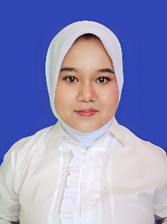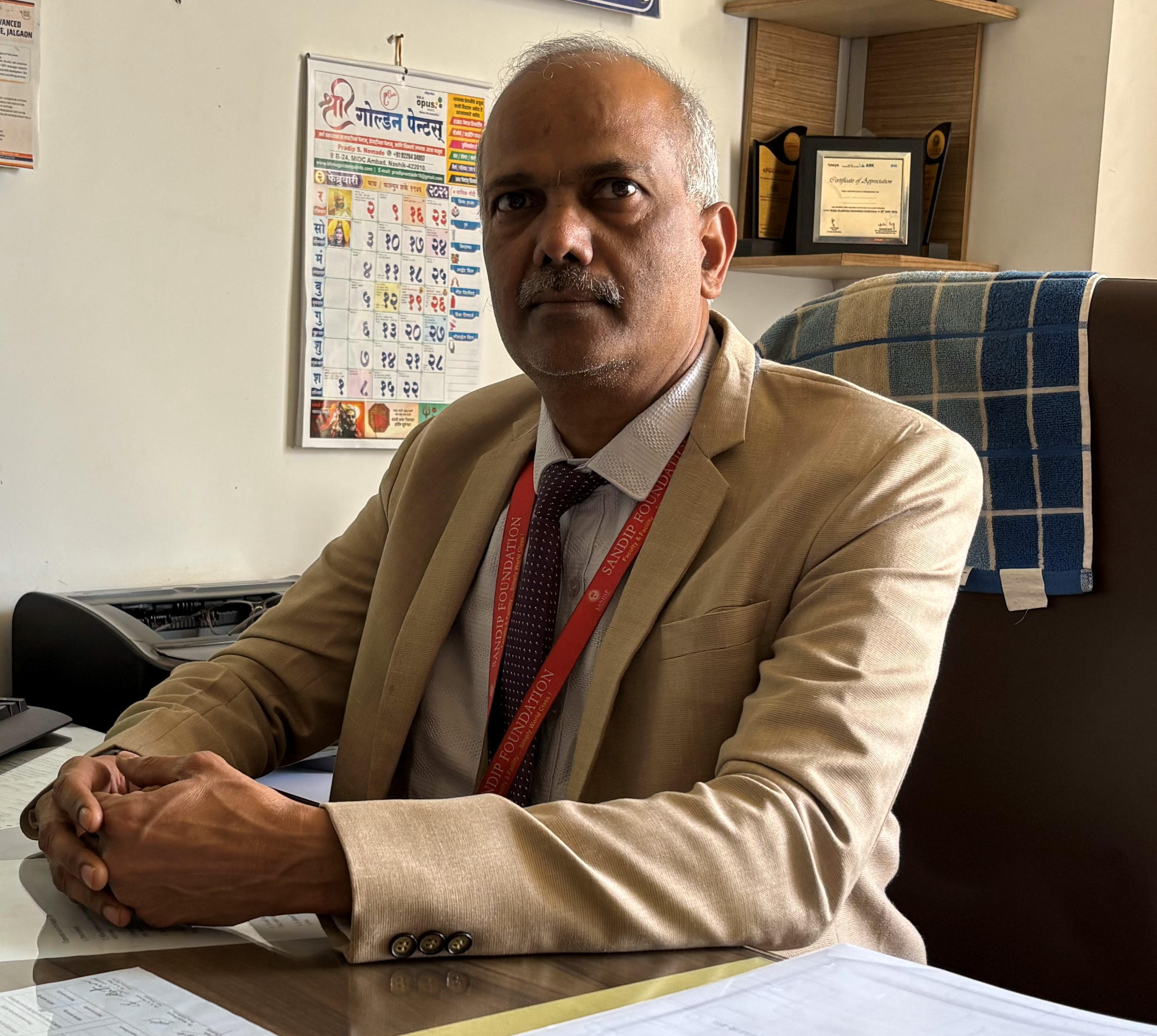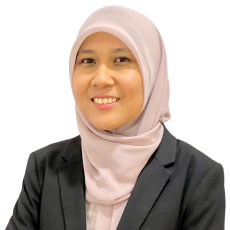PROGRAMME OVERVIEW
International Conference on Cross-Disciplinary Insights: Engineering, Higher Education, Social Science, and Humanities - (ICEESSH )
PROGRAMME OVERVIEW
Day 1 - 24th July 2025
Registration Desk
National Anthem of South Korea
Welcome Speech by Moderator
Welcome Speech by Special Guest of Honor
Photography Session
Refreshment Break
Technical Session - 1
Lunch break
Speech by Session
Speaker
Technical Session II
Refreshment Break
Valedictory function
Vote of Thanks
Day 2 - 25th July 2025
Welcome Speech by Moderator
Speech by Exclusive Event Speaker
Technical Session I A
Technical Session I B
Lunch Break
Technical Session II A
Technical Session II B
Speech by Session Speaker
Technical Session III A
Technical Session III B
Valedictory
Vote of thanks
Technical Session
Paper Title : Post-Disaster Tourism Infrastructure in Indonesia: Sustainable Recovery and Resilience After Tsunami and Earthquake

Mutia Nurul Makhfirah
Abstract :
Indonesia, as a disaster-prone country, has encountered substantial challenges in reconstructing its tourism infrastructure following catastrophic events such as the 2004 Aceh tsunami and the 2018 Lombok earthquake. This study examines lessons learned from post-disaster tourism infrastructure development in these affected regions, focusing on sustainable recovery and community resilience. A Systematic Literature Review (SLR) was conducted, analyzing 8 peer-reviewed articles published between 2010 and 2024, retrieved from Scopus, ScienceDirect, Google Scholar, and JSTOR, along with case studies and policy reports on tsunami and earthquake-affected destinations in Indonesia. The findings suggest that the successful recovery of tourism infrastructure is contingent upon effective collaboration among government bodies, local communities, and the private sector. Key themes identified include disaster-resilient design and active community participation in reconstruction efforts. This study underscores the necessity of integrating engineering principles, social sciences, and sustainable development frameworks to foster long-term resilience in tourism infrastructure. By providing valuable insights for post-disaster recovery strategies, this paper offers recommendations applicable to Indonesia and other disaster-prone regions worldwide. The findings emphasize the critical need to incorporate sustainability, resilience, and community empowerment into infrastructure development, thereby contributing to the tourism sector’s global discourse on disaster management.
Keywords:
Post-Disaster Tourism, Infrastructure Development, Tsunami, Earthquake, Indonesia, Sustainable Recovery, Community Resilience, Disaster Management, Systematic Literature Review.
Paper Title : Inclusive Education for Children in Remote Areas: A Case Study in East Nusa Tenggara

Agus Danugroho
Abstract :
Inclusive education is a fundamental approach that promotes equal access to education for all children, regardless of their background or location, including those in remote and underserved areas. This research investigates the implementation of inclusive education for children in East Nusa Tenggara, Indonesia, a province characterised by its remote geography and diverse cultural landscape. Using a case study approach, this research explores the challenges faced in providing quality education in remote areas, the strategies adopted by local communities and education authorities and the outcomes of inclusive education initiatives. The research used a qualitative methodology, including in-depth interviews with 25 respondents comprising educators, community leaders and policy makers, field observations and analyses of relevant education documents. Data analysis techniques included thematic analysis, which involves identifying, analysing and reporting patterns in the data. Purposive sampling was used to select participants with specific knowledge and experience of inclusive education in the area. The findings show that, despite the challenges faced such as limited infrastructure, shortage of qualified teachers and geographical barriers, the inclusive education programme has shown positive impacts on students' participation and academic achievement. Key factors contributing to the success of inclusive education programmes include community involvement, culturally relevant curricula and the training and empowerment of local educators. This research provides valuable insights to improve inclusive education policies and practices in Indonesia and other developing countries with similar contexts and challenges.
Keywords:
Inclusive Education, Educational Policy, Community Involvement, Teacher Empowerment.
Paper Title : Addressing Challenges in Diagnosing and Remediating Physics Misconceptions: A Needs-Based Approach

Dendy Siti Kamilah
Abstract :
This study explores effective methods for identifying and remediating misconceptions in high school physics through technology-enhanced diagnostics and innovative remedial strategies. A quantitative descriptive approach was used, with data collected from (1) a survey of 16 physics teachers, (2) a systematic literature review (SLR) analyzing 61 articles published between 2019 and 2024, and (3) a diagnostic test for 53 students. Results show static fluid as the most common topic for misconceptions, including the belief that hydrostatic pressure depends on container shape and that an object's sinking is determined solely by volume and mass. Teachers mainly used informal methods, such as Q&A, to identify misconceptions, while the SLR highlighted four-tier tests as the most effective diagnostic tool. For remediation, computer simulations and refutation texts emerged as promising strategies. To enhance accessibility and efficiency, this study proposes a web-based platform integrating digital four-tier tests, interactive simulations, and refutation texts to reduce teacher workload, address time constraints, and improve student conceptual understanding.
Paper Title : Do Public Companies Sustainability Reports in Indonesia Consider Virtue Ethics

Muhammad Isnaini Hamidi
Abstract :
This research explores the application of virtue ethics in accounting, particularly in corporate sustainability reporting. Virtue ethics focuses on developing moral character to achieve human excellence. The research question is how virtue is reflected in corporate sustainability reports in Indonesia. The novelty of this research is the application of virtue ethics theory to sustainability reporting, which has not been widely explored before. The research uses a qualitative method with content analysis on secondary data in the form of sustainability and annual reports from companies in the Indonesia Stock Exchange ESG index. The results show that the practice of virtue ethics has not been deeply reflected in sustainability reporting in Indonesia. Companies have long-term strategic plans but the current implementation has not been maximized.
Paper Title : Teachers Perceptions and Challenges in Integrating Digital Literacy: Insights from ELT Practices

Della Febrianti
Abstract :
Digital literacy has become an integral part of 21st-century education. In English Language Teaching (ELT), integrating digital tools and resources offers numerous opportunities for engaging and effective instruction. The successful implementation of digital literacy can be influenced by teachers' perceptions and ability to incorporate digital technologies into their teaching practices. This study aims to explore teachers’ perceptions toward the implementation of digital literacy and to explain the challenges and barriers they face when implementing digital literacy in ELT. The study involved 22 Indonesian high school English teachers. A questionnaire with a Likert scale, multiple choice, and open-ended questions totaling 24 items was used to collect the data. The data were analyzed using the SPSS tool to ensure validity and reliability. The quantitative data on teachers' perceptions and the challenges were analyzed descriptively. Results show that English teachers generally have positive perceptions of implementing digital literacy in ELT. However, the challenges and barriers they face mostly relate to internet connection issues, students' conditions, and the availability of supporting devices. The findings of this study are expected to contribute to the teachers' digital literacy knowledge and enhance teachers’ awareness to overcome challenges and barriers in implementing digital literacy in their ELT practices.
Keywords:
Challenge and barriers, Digital literacy, ELT, High school education, Teachers’ perception
Paper Title : THE SACRED VEIL OF EXPLOITATION: A CRITICAL STUDY OF RELIGIOUS JUSTIFICATION AND GENDERED BODY TRADE IN SUNGAI PASIR

Muhammad Alhada Fuadilah Habib
Abstract :
This study examines the practice of nikah siri (unregistered marriage) in Sungai Pasir Village as a social phenomenon representing the intersection of religious institutions, patriarchy, and local capitalism in legitimizing the exploitation of womens bodies. Grounded in the paradigm of critical sociology, this research investigates how kyai (religious leaders), brokers, and male clients collaborate to construct multilayered power relations that position women as transactional commodities. Through an exploratory case study employing in-depth interviews with 10 women involved in nikah siri, 2 brokers, 1 kyai, and 3 male clients, the study identifies seven primary forms of exploitation. These include religious legitimization of bodily transactions, negotiation of high mahr (bride price), reproductive control through family planning programs, and the legal uncertainty of women and children born from such marriages. The analysis draws on Marx’s concept of religion as an ideological superstructure, Gramsci’s theory of hegemony, Bourdieu’s notion of symbolic capital, as well as feminist theories and maqasid syariah (the higher objectives of Islamic law). The findings reveal that nikah siri is not merely a religious practice but part of a socio-economic mechanism that perpetuates gender inequality. Religion functions as an ideological apparatus that normalizes the subordination of women, while the kyai’s symbolic capital is converted into economic capital. This study recommends women's economic empowerment, the reinterpretation of Islamic jurisprudence grounded in social justice, and the legal registration of marriages to ensure the protection of women's and children's social and legal rights. These findings contribute to the field of critical sociology of religion and open space for reflection on how religious legitimacy can obscure exploitative power relations.
Keywords:
Unregistered Marriage (Nikah Siri), Symbolic Capital, Womens Exploitation, Ideological Hegemony, Body Commodification, Maqasid al-Sharia
Paper Title : Smart University Campus Assessment, case study of United Arab Emirates University (UAEU).

Lindita Bande
Abstract :
The first and a leading university in the UAE, United Arab Emirates University (UAEU) continues to grow, however, growth comes with the challenge of maintaining a sustainable and comfortable campus environment. Student enrolments are increasing while the pressure on the physical infrastructure of the campuses is mounting – we need to radically re-consider the functioning of the buildings and outdoor spaces, in terms of user comfort and energy efficiency. This research aims to investigate the potential of smart design strategies and the opportunities AI and computational tools offer to achieve higher levels of integration of photovoltaic (PV) technology across the campus. Evaluating current buildings and open spaces, it identifies major issues like high exposure to heat, overheating, and high energy consumption. Following this, AI- powered modeling and simulation methodologies are utilized to investigate optimal paths for the implementation of PV-integrated shading structures, building-integrated photovoltaics (BIPV), and automated energy systems. These smart solutions help keep energy demand down, while creating cooler, more comfortable outdoor spaces for students and faculty. This is not only about increasing energy efficiency; this is about the broader approach of how we will be leveraging sophisticated technology and intelligent design to be a more resilient and eco-friendly campus. The insights are promising, especially for universities in hot climates that are seeking practical, scalable solutions that increase their sustainability projects without impeding the quality of student life.
Keywords:
PV panels, Renewable energy, Sustainability, Shading systems
Paper Title : STUDYING THE OF ANXIETY IN THE WORKPLACE OF GENERATION Y AND Z THROUGH BRAIN SCIENCE METHODS

Sanjaa.B
Abstract :
This study examines personality traits at the intersection of human resource management, psychology, and neuroscience, using experimental research methodologies. The outcomes were analyzed through both quantitative and qualitative methods. The research explored how individual personality traits influence workplace group dynamics and compared behavioral characteristics across different age groups. A distinguishing feature of the study was the combined application of the “Five-Factor Model” and the “Neuropsychological Model of Emotion” (positive and negative emotion models). In human resource management, personality traits are commonly analyzed within the framework of the Five- Factor Model in relation to situational factors. Meanwhile, in neuroscience, emotional triggers of positive and negative behavior are studied using the Neuropsychological Model of Emotion. This study integrates these theoretical frameworks and incorporates brain activity analysis methods to investigate behavioral patterns in workplace group interactions. To induce anxiety experimentally, selected negative workplace behaviors—such as interpersonal conflicts, misunderstandings, and disputes between supervisors and subordinates—were recorded and presented to participants in video format. As participants viewed the video stimuli, their anxiety responses were observed through changes in alpha and beta wave activity, which are known to reflect emotional states. The results indicated that heightened anxiety was associated with increased beta and decreased alpha wave activity. Statistical analysis confirmed the reliability of the research model, with a Cronbach’s alpha of 0.826 (82.6%). These findings validate the experimental framework as a reliable tool for examining how negative social stimuli in organizational settings influence both group behavior and corresponding changes in brain activity.
Keywords:
Five Factor Model, Neuropsychological model of emotion (NME), ICA (Independent Component Analysis)
Paper Title : Comparative Analysis of Chatbot Adoption in Indonesian Provinces and Assess the Future Potential in Tourism Sector: A Literature Review

Augustin Rina Herawati
Abstract :
This study aims to compare chatbot utilization in Indonesian provinces and assess the future potential in the tourism sector. We examine several pioneering chatbot implementations, including Pariyata in Yogyakarta; Mushi in Malang; as well as the Chatbot Desa Wisata Badung and MELALI in Bali. Results indicate that prototype chatbots built on rule-based AIML (Pariyata) and Dialogflow (Badung, MELALI) achieved high response accuracies when answering destination queries, demonstrating technical feasibility and user acceptance. However, early initiatives such as Mushi suffered from limited functionality and platform maintenance issues, showing the importance of sustainable governance and continuous system updates. Comparative analysis reveals that project with institutional support (universities, provincial government) and clear maintenance plans yield more consistent performance, while those lacking long-term funding face rapid obsolescence. Looking ahead, advanced natural language understanding, AI-driven recommendation engines, and multi-channel deployment (web, mobile, messaging apps) are necessary to enhancing user experience and operational resilience. To fully realize chatbot potential in Indonesian tourism, stakeholders should prioritize scalable cloud-based architectures, integration with smart-city and e-government platforms, and data-driven personalization features that adapt to visitor profiles. By addressing governance, technical, and user-engagement challenges, future chatbot deployments can support post-pandemic recovery, increase tourist satisfaction, and contribute to sustainable regional development.
Paper Title : Smart virtual wardrobe using Artificial Intelligence

Eva Gupta
Abstract :
This paper introduces a smart wardrobe system powered by artificial intelligence, designed to simplify wardrobe management and promote sustainable fashion. Using a ResNet- 50 convolutional neural network for clothing recognition and a hybrid recommendation engine, the system reduces outfit selection time by 40% and increases wardrobe utilization by 15%, as validated with 200 users. Despite a 5% error rate with unconventional garments, this research paves the way for innovations like smart mirrors, enhancing both convenience and environmental consciousness.
Keywords:
Smart wardrobe, artificial intelligence, outfit recommendation, sustainable fashion, computer vision.
Paper Title : AUTOMATIC ATTENDANCE GENERATOR USING FACE RECOGNITION

PRINCE RAJ
Abstract :
Facial Recognition is a technology that has been used in many areas like security systems, human machine interaction and image processing techniques. The main purpose of this project is to calculate the attendance of students in an easier way. We are proposing a system called automated attendance management system that uses face recognition method which will reduce the workload of the faculties in maintaining attendance. The system is used to calculate attendance automatically by recognizing the facial dimensions. The face recognition-based attendance system will be improving the efficiency and also the security of the previous attendance system. Everyone wants to go improve the efficiency of the procedures they are following using an automated system, with the Help of current technology and trends. Because it lets us avoid the manual attendance method and saves a lot of Timecooperation from the user. Moreover, facial features are stable and unique, making the system reliable and scalable. Face recognition systems generally operate in two modes: verification (1:1 matching) and identification (1:N matching). In the context of attendance, identification is more relevant, where the system compares a query face image against a database of known faces. The objective of this research is to develop a robust and time-efficient face recognition-based attendance system that automates the process, enhances accuracy, and reduces human effort—thus overcoming the limitations of traditional and other biometric systems.
Paper Title : Developing a Drone-Focused Curriculum in a Newly Established Department: Challenges and Pedagogical Insights from Taiwan

CHEN, Yang Cheng Kuang
Abstract :
As unmanned aerial vehicles (UAVs) rapidly evolve from niche technologies into indispensable tools across industries such as agriculture, disaster response, logistics, and infrastructure inspection, there is a growing imperative to equip future professionals with both theoretical knowledge and practical expertise in drone technologies. While most institutions in Taiwan incorporate UAV-related instruction through elective modules or interdisciplinary minors, WuFeng University has established the first standalone undergraduate department solely dedicated to drone technology education. This paper offers a comprehensive analysis of the pedagogical design, institutional challenges, and implementation strategies involved in building such a program from the ground up. We begin by outlining the theoretical framework underpinning our curriculum development, which is grounded in constructivist learning theory, experiential learning, and STEM-integrated education models. The program adopts a project-based and competency-driven approach, emphasizing interdisciplinary integration of mechanical systems, embedded systems, flight dynamics, AI-based navigation, and aviation regulations. We also address critical institutional challenges including curriculum legitimacy, faculty recruitment, resource limitations, and regulatory constraints on flight operations. Empirical data, drawn from course evaluations, student learning outcomes, and collaborative industry projects, are analyzed to assess the effectiveness of the program. Key findings highlight the importance of simulation environments, modular curriculum design, and university–industry partnerships in sustaining innovation within emerging technology education. This study contributes to the discourse on higher education reform in the face of technological disruption and offers actionable insights for institutions seeking to establish or enhance UAV education programs.
Paper Title : Regional Economic Divergence and Inequality in Mongolia: A Multidimensional Analysis with a Focus on the Gobi Region

Sodnomdavaa Tegshjargal
Abstract :
This study aims to examine the dynamics of regional economic growth and income inequality in Mongolia over the period 2000-2024, using the theoretical framework of neoclassical economic growth. Employing a comprehensive dataset, the analysis integrates multiple econometric methods, including conditional β-convergence and σ-convergence tests, Markov transition matrices, kernel density estimation, and inequality measures such as the Gini coefficient and Theil index. The results indicate statistically significant evidence of β-convergence, suggesting that provinces with lower initial income levels tend to grow faster. However, σ-convergence, which measures the reduction in income dispersion over time, is not observed at the national level. The only region showing statistically significant σ-convergence is the Khangai region. In contrast, the Gobi region exhibits increasing intra-regional income disparities driven by structural differences in sectoral composition and resource concentration. Markov chain analysis reveals that high-income provinces, such as Umnugobi, maintain their economic dominance, while low-income provinces show limited upward mobility. Kernel density plots reveal a shift from an unimodal to a bimodal distribution, indicating the emergence of a dual economy. The steady rise in the Gini and Theil indices further confirms the deepening inequality, particularly linked to the expansion of the mining sector and disparities in infrastructure and institutional capacity. The findings underscore the need for a more balanced regional development strategy that focuses on diversifying the economic base, improving access to infrastructure and social services, and strengthening institutional effectiveness. Without such measures, regional disparities may continue to widen, undermining the long-term sustainability of inclusive economic growth in Mongolia.
Keywords:
Mongolia, regional inequality, economic convergence, Gobi region, convergence, Markov matrix, kernel density estimation, Gini coefficient, Theil index, regional policy
whatsapp Community

Join IFERP whatsapp Community
Join Now







